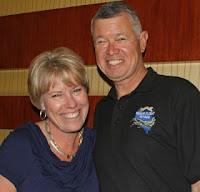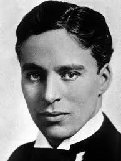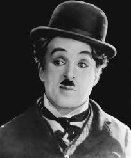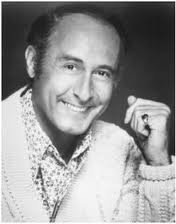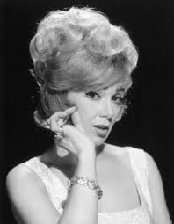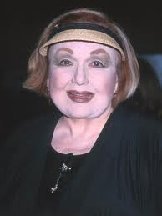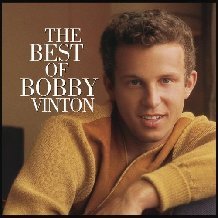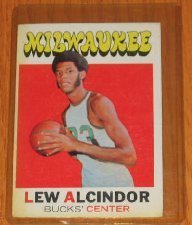
A barber is a person whose occupation is mainly to cut, dress, groom, style and shave men's and boys' hair or beards. A barber's place of work is known as a "barbershop" or a "barber's". Barbershops are also places of social interaction and public discourse. In some instances, barbershops are also public fora. They are the locations of open debates, voicing public concerns, and engaging citizens in discussions about contemporary issues.
In previous times, barbers (known as barber surgeons) also performed surgery and dentistry. With the development of safety razors and the decreasing prevalence of beards, in Anglophonic cultures, most barbers now specialize in cutting men's scalp hair as opposed to facial hair.
In modern times, the term "barber" is used both as a professional title and to refer to hairdressers who specialize in men's hair. Historically, all hairdressers were considered barbers. In the 20th century, the profession of cosmetology branched off from barbering, and today hairdressers may be licensed as either barbers or cosmetologists. Barbers differ with respect to where they work, which services they are licensed to provide, and what name they use to refer to themselves. Part of this terminology difference depends on the regulations in a given location.
In the early 1900s an alternative word for barber, "chirotonsor", came into use in the U.S.
Different states in the US vary on their labor and licensing laws. For example, in Maryland and Pennsylvania, a cosmetologist cannot use a straight razor, strictly reserved for barbers. In contrast, in New Jersey both are regulated by the State Board of Cosmetology and there is no longer a legal difference in barbers and cosmetologists, as they are issued the same license and can practice both the art of straight razor shaving, coloring, other chemical work and hair cutting if they choose.
In Australia, during the mid to late 20th century, the official term for a barber was men's hairdresser; barber was only a popular title for men's hairdressers. During this time, most would work in either a barbershop or hairdressing salon.
The barber's trade has a long history: razors have been found among relics of the Bronze Age (around 3500 BC) in Egypt. The first barbering services were performed by Egyptians in 5000 B.C. with instruments they had made from oyster shells or sharpened flint. In ancient Egyptian culture, barbers were highly respected individuals. Priests and men of medicine are the earliest recorded examples of barbers. In addition, the art of barbering played a significant role across continents. Mayan, Aztec, Iroquois, Norse and Mongolian cultures utilized shave art as a way to distinguish roles in society and wartime.[4] Men in Ancient Greece would have their beards, hair, and fingernails trimmed and styled by the κουρεύς (cureus), in an agora (market place) which also served as a social gathering for debates and gossip.
Barbering was introduced to Rome by the Greek colonies in Sicily in 296 BC, and barbershops quickly became very popular centres for daily news and gossip. A morning visit to the tonsor became a part of the daily routine, as important as the visit to the public baths, and a young man's first shave (tonsura) was considered an essential part of his coming of age ceremony. A few Roman tonsores became wealthy and influential, running shops that were favourite public locations of high society; however, most were simple tradesmen, who owned small storefronts or worked in the streets for low prices.
Starting from the Middle Ages, barbers often served as surgeons and dentists. In addition to haircutting, hairdressing, and shaving, barbers performed surgery, bloodletting and leeching, fire cupping, enemas, and the extraction of teeth; earning them the name "barber surgeons".[5] Barber-surgeons began to form powerful guilds such as the Worshipful Company of Barbers in London. Barbers received higher pay than surgeons until surgeons were entered into British warships during naval wars. Some of the duties of the barber included neck manipulation, cleansing of ears and scalp, draining of boils, fistula and lancing of cysts with wicks.
In 1893, A. B. Moler of Chicago established a school for barbers. This was the first institution of its kind in the world, and its success was apparent from its very start. It stood for higher education in the ranks, and the parent school was rapidly followed by branches in nearly every principal city of the United States. In the beginning of barber schools, only the practical work of shaving, hair-cutting, facial treatments, etc., was taught as neither the public nor the profession was ready to accept scientific treatments of hair, skin and scalp. Not until about 1920 was much effort made to professionalize the work.[
Training to be a barber is achieved through various means around the world. In the US, barber training is carried out at "barber schools".
The barber pole, featuring blue, red and white spiraling stripes, symbolized different aspects of the craft. It is a symbol from the time when barbers used to perform medical procedures. The white and red stripes represent bandages and blood while the blue stripes represent veins. In the United States, the blue stripe is also sometimes used to match the flag.
Let your slow cooker do some of the cooking this Easter! With our recipe for Slow Cooker Glazed Carrots you have one less thing to worry about. Just toss in all of the ingredients into your slow cooker and...that's it! By the time Easter dinner is ready, you'll have orange-glazed carrots to serve alongside that Easter ham or roast.
- 2 pounds baby carrots
- 1/2 onion, cut into thin, half-moon slivers
- 1/2 stick butter, melted
- 1/2 cup orange marmalade
- Zest of 1 orange
- Juice of 1 orange
- 1/2 teaspoon salt
- 3 tablespoons light brown sugar
- In a 4-quart or larger slow cooker, combine all ingredients except brown sugar; mix well. Cook on HIGH 2-1/2 hours; stir in brown sugar, and cook an additional 30 minutes or until carrots are fork-tender.

1924 – Henry Mancini, American composer (d. 1994)
1927 – Edie Adams, American actress (d. 2008)
1935 – Bobby Vinton, American singer
- In 1894 stockbroker Lemuel Benedict ordered “buttered toast, poached eggs, crisp bacon, and a side of Hollandaise” at the Waldorf Hotel. They were so impressed with the dish that they put it on the menu substituting ham and English muffins in place of the bacon and toast.
- In the early 18th century, Pope Benedict XIII liked an egg dish so much that he requested it time and time again. It is also believed that Pope Benedict XIII had an illness which added to his desire for this particular egg dish, hence the name Eggs Benedict.






